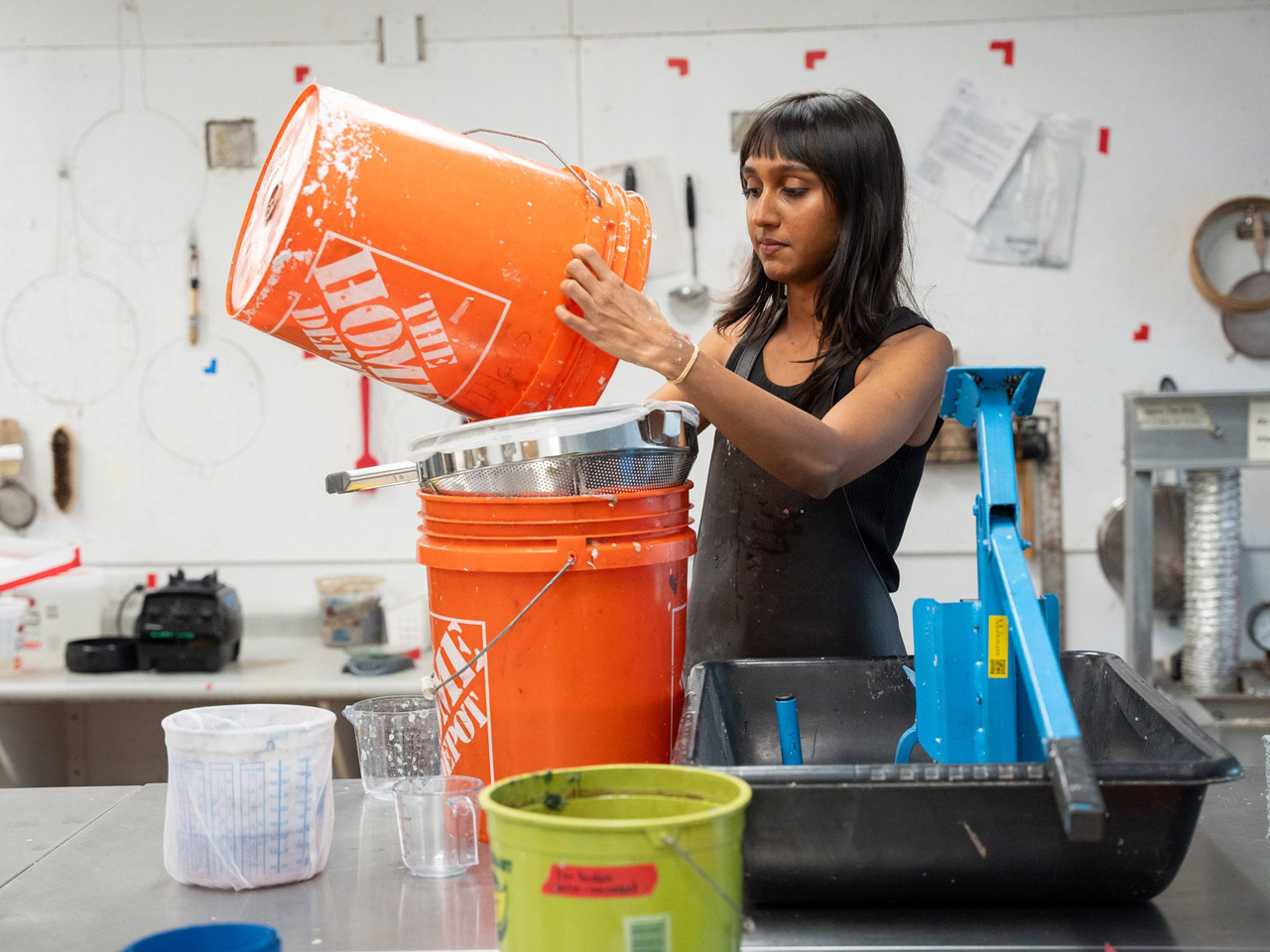
"The Rhode Island School of Design has discovered something remarkable hiding in plain sight: their trash bins contain tomorrow's art supplies. Through the newly launched Loop Lab initiative, what once headed to landfills now becomes raw material for the next generation of designers and artists. The Edna W. Lawrence Nature Lab spearheaded this ambitious pilot project with backing from a substantial $100,000 grant from the Maxwell/Hanrahan Foundation."
"Walking through the Loop Lab reveals an almost alchemical process. Blotter paper that once absorbed spilled paint finds new life as a substrate for experimental work. Cotton muslin scraps, previously destined for disposal, emerge as carefully prepared materials ready for student projects. The transformation extends beyond mere recycling, representing a fundamental shift in how educational institutions can approach resource management. Students participate directly in this material resurrection, learning firsthand about circularity principles while solving practical design challenges."
"Each transformed material carries embedded stories about waste reduction, resourcefulness, and environmental responsibility. Recent media attention from design publication Dezeen highlights the broader implications of RISD's approach. The coverage emphasizes how the initiative addresses what project leaders call "the lowest hanging fruit" in institutional sustainability efforts. By focusing on internal waste streams, the school creates immediate impact while developing scalable solutions."
RISD's Loop Lab converts campus waste into studio-ready materials through a closed-loop system led by the Edna W. Lawrence Nature Lab and funded by a $100,000 Maxwell/Hanrahan Foundation grant. The initiative redirects items like blotter paper and cotton muslin scraps from landfills into prepared substrates and fabrics for student projects. Students engage hands-on in recovering and repurposing materials, learning circularity principles while addressing practical design challenges. The program reduces institutional waste, promotes resourcefulness and environmental responsibility, attracts media attention, and targets internal waste streams as scalable, high-impact sustainability opportunities.
Read at Yanko Design - Modern Industrial Design News
Unable to calculate read time
Collection
[
|
...
]